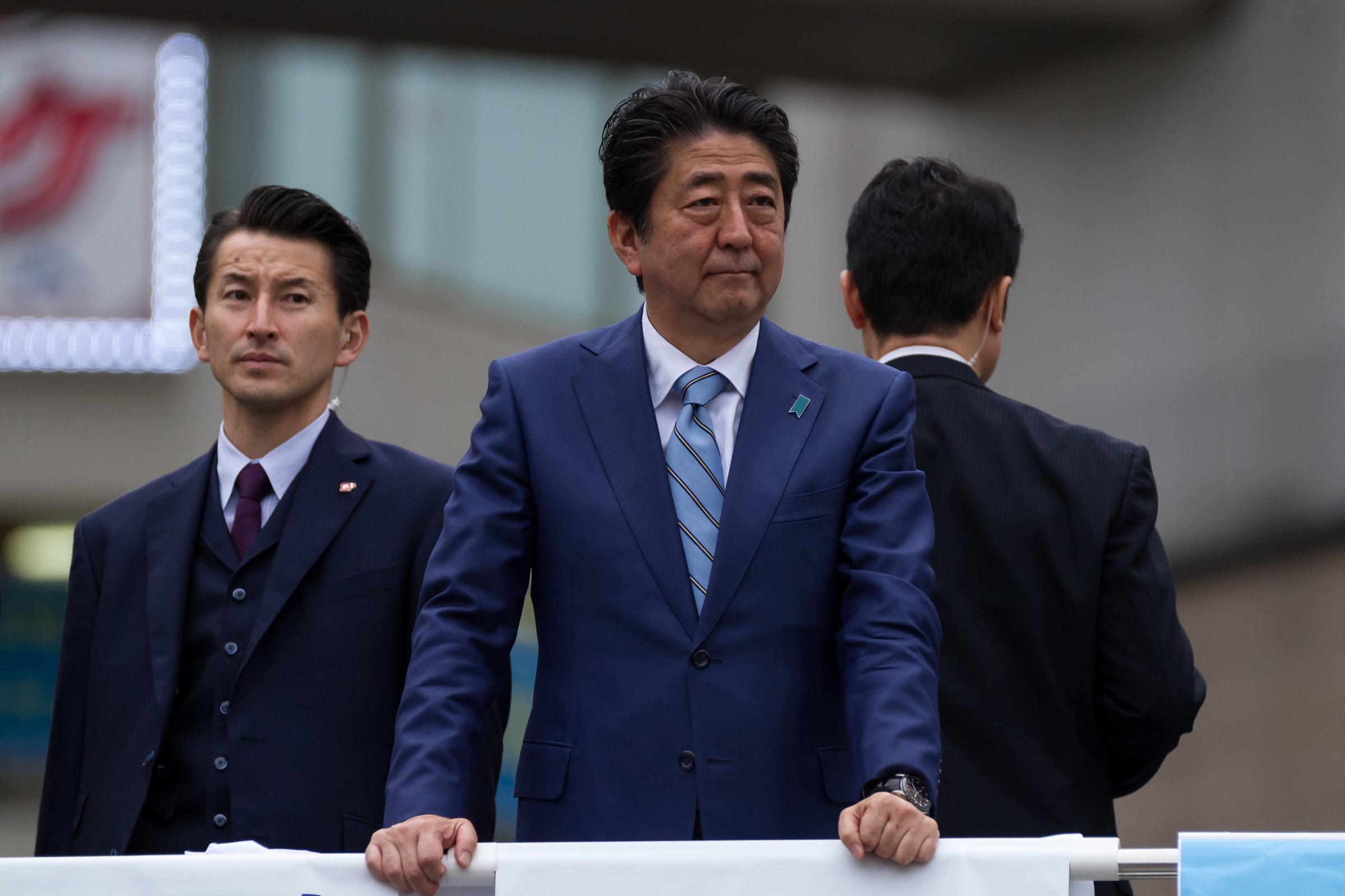
For the West’s strongest leader, look East. After his party’s landslide victory in the parliamentary elections on Oct. 22, Prime Minister Shinzo Abe of Japan is poised to become his country’s strongest and most successful leader in the postwar era.
Abe’s center-right coalition retained its two-thirds supermajority in Japan’s lower house of parliament, and his Liberal Democratic Party won an absolute majority on its own, allowing it to control the legislative agenda. Although Abe’s ratings sank to a record low earlier this year, his opposition proved to be as fragmented as ever. Rising star Yuriko Koike, Tokyo’s governor, kept her distance from this race, and the new Constitutional Democratic Party, rather than her newly minted Party of Hope, will now be the largest in opposition. Lawmakers will reinstall Abe as Prime Minister in time for Donald Trump’s visit to Japan on Nov. 5. If he goes on to win a third term as his party’s president next September, he will become Japan’s longest-serving leader since the 1880s.
Abe now has time to play the long game. He wants very much to amend Article Nine of Japan’s constitution–which repudiates war as a mean to resolve global disputes–to affirm once and for all Japan’s right to maintain a military. Yet this remains a controversial question for Japanese voters, including both ideological pacifists and those who prefer their leader to focus on revitalizing the economy rather than entangling it in foreign conflicts. Abe will likely wait until his third term is secure before making any bold move.
But this parliamentary victory leaves him in a stronger position to play a more assertive role in East Asia, particularly in counterbalancing China. Trump’s foreign policy ambivalence only makes this more important. Abe will also try to persuade the U.S. President during his visit to sell Japan cruise missiles as a deterrent against North Korea.
On trade, Abe can be firm with Trump. In particular, he can resist pressure to commit to bilateral trade talks because he now has more confidence that he’ll be around long enough to persuade a future U.S. President to return to the Trans-Pacific Partnership, a multicountry deal that Trump has rejected and Abe still wants. Even if that fails, Abe would prefer TPP without the U.S. to a new bilateral agreement.
Another point on the long game: Abe hopes that Japan’s shrinking labor market will raise wages for workers, triggering the reflation of prices that Japan needs for stronger growth. More lending with more state spending, and Japan’s economy might be revving nicely in time for the 2020 Tokyo Olympic Games. If it works, that’s a legacy any elected leader would envy.
More Must-Reads from TIME
- Donald Trump Is TIME's 2024 Person of the Year
- Why We Chose Trump as Person of the Year
- Is Intermittent Fasting Good or Bad for You?
- The 100 Must-Read Books of 2024
- The 20 Best Christmas TV Episodes
- Column: If Optimism Feels Ridiculous Now, Try Hope
- The Future of Climate Action Is Trade Policy
- Merle Bombardieri Is Helping People Make the Baby Decision
Contact us at letters@time.com